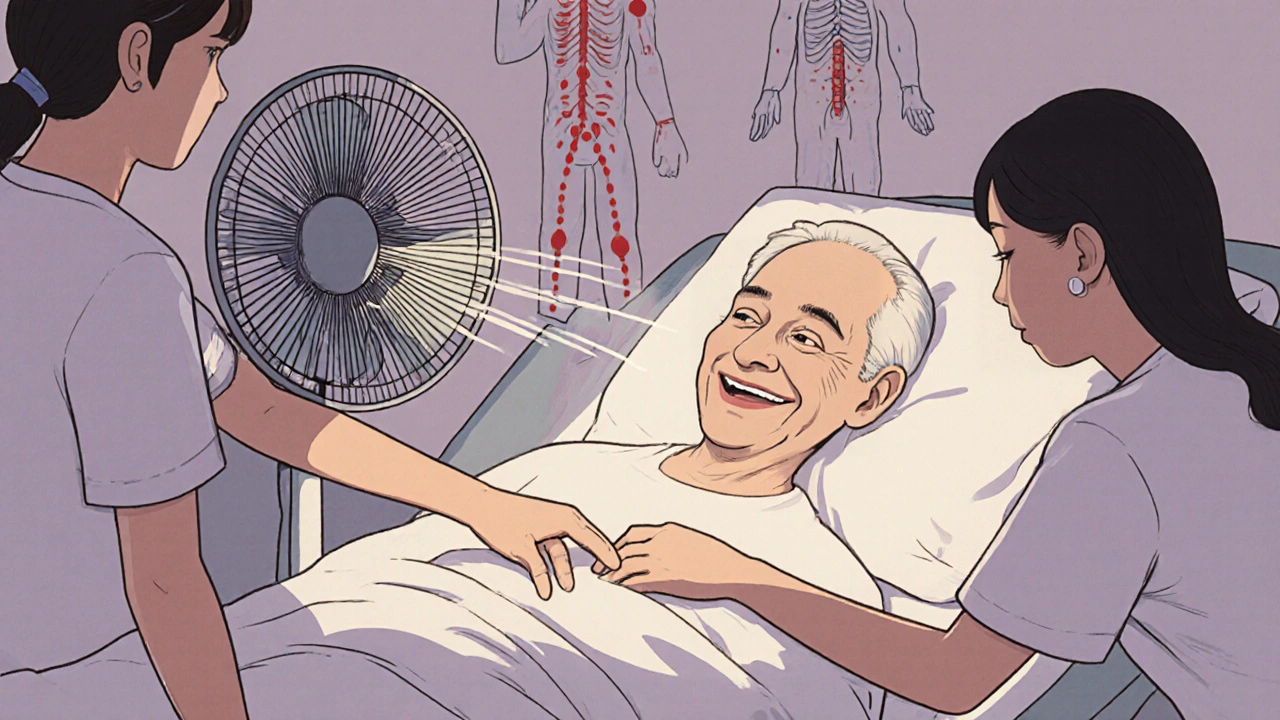Side Effects: What to Watch For
Side effects can be mild and fleeting or serious and fast-moving. You don’t need to panic, but you should know what to expect and when to act. This page gives straight, useful tips so you can use medicines and supplements more safely.
Common side effects and real examples
Some reactions are very common: nausea, headache, dizziness, or mild rash. For example, antibiotics like azithromycin (Zithromax) often cause stomach upset and, rarely, changes in heart rhythm. Blood pressure drugs such as valsartan (Diovan) can make you lightheaded when you stand up or affect kidney tests. Diuretics like furosemide (Lasix) often cause increased urination and can lower potassium. Hormone treatments and fertility drugs such as clomiphene (Clomid) can bring mood swings, hot flashes, or visual changes.
Supplements aren’t always harmless. Herbal extracts and concentrated botanicals (like tinctures or labeled supplements on the site) can interact with prescriptions. For instance, some supplements raise bleeding risk if you’re on blood thinners, or boost drug levels by blocking liver enzymes. If you mix several new products at once, it’s harder to know which one caused the problem.
How to reduce risk and what to do if something goes wrong
Start simple. Read the leaflet that comes with the medicine. Ask the pharmacist one clear question: “Will this interact with my current meds or conditions?” Keep a written list of every prescription, over‑the‑counter drug, and supplement you take and show it to each clinician.
Watch the timing. Many allergic reactions and serious problems show up in the first 48–72 hours, though some side effects develop after weeks. If you notice hives, sudden swelling of face or throat, breathing troubles, fainting, or severe chest pain, seek emergency care immediately. For less urgent but worrying symptoms — severe diarrhea, yellowing skin, sudden weight gain, persistent dizziness, or new mental changes — call your doctor the same day.
Simple steps help prevent problems: take meds exactly as prescribed, avoid doubling doses, don’t drink alcohol if warned, and store drugs correctly. Before stopping a prescription, check with a clinician — some meds need tapering rather than abrupt stop.
If you’re unsure whether a symptom is a side effect, contact your pharmacist or prescriber. You can also report adverse reactions to your national drug-safety agency — filing a report helps improve safety for everyone. When in doubt, trust urgent symptoms and get checked; catching issues early often keeps them small and fixable.
Want more on a specific drug or supplement mentioned here? Check our individual guides for Zithromax, Diovan, Lasix, Ciplox, and common supplements to see detailed side-effect lists and real-world tips from patients and clinicians.
Palliative and Hospice Care: How to Balance Symptom Relief with Minimal Side Effects
Learn how palliative and hospice care balance pain relief with minimal side effects. Discover practical strategies for managing symptoms like breathlessness, delirium, and nausea while preserving dignity and quality of life.
Decadron Explained: Uses, Dosage, Side Effects & Safety Tips
A clear guide to Decadron - what it is, how it works, proper dosing, common side effects and safety advice for everyday use.
Aripiprazole and Hair Loss: Is it an Effective Treatment?
Alright folks, buckle up as we dive into the intriguing world of Aripiprazole and hair loss! This wonder drug, typically used as an antipsychotic medication, has also been spinning heads in the hair loss community. Now, don't get too excited, it's not a magical hair-growth potion, but some studies suggest a potential link between Aripiprazole and decreased hair loss. Yes, you heard it right! However, it's important to remember that we're still in the early stages of understanding this connection, and we should approach this with optimistic caution—like a balding man approaching a comb.
Understanding Cabergoline: How It Works and What to Expect
Cabergoline is a medication I recently came across, and I thought it would be helpful to share my understanding of how it works and what to expect. It's primarily used to treat high levels of prolactin in the body, which can cause various health issues. The drug works by acting on dopamine receptors, which helps to reduce prolactin levels. Some common side effects include nausea, dizziness, and headache, but most people tolerate the medication well. If you're prescribed cabergoline, it's important to follow your doctor's instructions closely and report any concerning side effects.



